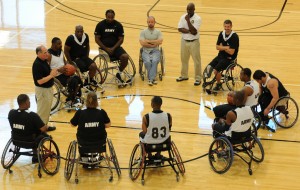The Importance of Two-way Communication

Two-way Communication helps a coach gauge their teams true feelings and gives the best indication on how to ideally manage players. Having a good basis of two-way communication as a coach will help you deal with the most challenging of issues with your team in the most positive manner. Issues such as player performance and behaviour management are just two of these issues that if communication is at its best, will assist in dealing with the issue and finding the underlying cause.
Being able to discuss various challenging matters with your players can be troubling for a lot of coaches and can lead to some very stressful situations which no coach enjoys. But when working with people these can be common situations, so by looking for opportunities to promote two-way communication as a coach you will be better prepared to deal with the hard scenarios.
A common problem that is often experienced when discussing these issues for coaches is they realise they do not have a strong common ground for dialogue. Sometimes as a coach you miss these types of opportunities if you do not promote conversations and discussions with your players. In times when everything is going good, the coach can shift quite easily into a very one dimensional style because by human nature players will be willing to listen and follow direction more easily in the “good times”. It is not until issues surface, usually connected with underperformance that the finer points of coaching like two-way communication become more important.
Additionally, in many situations the communication between a coach and their players is a one way street and it is not until a coach becomes more familiar with their role that they start to allow more responsibility to be passed onto players for the leadership and direction of the team.
To remedy this one way communication scenario there are some activities which will assist promote player interaction with the team as a whole and develop an opportunity for good conversation to be had between a player and their coach. This in turn will help develop the characteristics like honesty and trust in what a coach says which are vital during dealing with challenging scenarios like addressing underperformance on an individual or team basis.
Some of the great team based activities which can help develop the prospect of two-way communication are game goal setting. Game goal setting can be undertaken as a team and individual activity. What is important though is promoting discussion amongst players and coaches. Goal setting can also be a valuable tool in helping with evaluating performance and gives opportunities for the player and their coach to be honest about where their development needs are for the player to reach their full potential.
One of the more regular activities which can be undertaken for promoting discussions amongst the group is by evaluating team training sessions and games. At these times by involving the team in the discussion you will promote a readiness by players to express what they see is being concern or identifying positives from theirs and the team’s performance. While the coach will have experience and a game plan in mind listening and hearing what players have to say will provide a valuable different perspective.
Another opportunity for two-way communication exists in player evaluations and observations. As a coach you have a responsibility throughout the season to review a player’s performance. Their reviews can be conducted throughout the season at regular intervals and can be used as a way of refocusing attention on areas of an individual’s development. The challenging issue of underperformance, behaviour or fulfilling team commitments can also be addressed in these meetings if the timing is right.
Initially be sure to give positive praise to players who are demonstrating this two-way communication. If initially players feel they are being judged too heavily then they may not engage for fear of being wrong in front of the group.
As a warning whenever speaking with players always do so with another member of your staff present. Avoid putting yourself in poor judgement situations which can raise member protection issues. This is a non-negotiable rule when working with junior athletes and is even advised when discussing these matters with senior players as well as it promotes a group solution which helps support the player and not isolate them.
To have a truly successful outcome for the player and the team one aspect to be aware of is that time is needed. Only through spending time with your players will you develop the trust of your players for them to believe you have theirs and the team’s best interests at the forefront of your actions. In today’s society time is probably the most valuable commodity of all and as a coach to get the most out of the players and help them develop as people time is one of the key ingredients. Two-way communication will be one of the positive outcomes as a result of this time you spend with your team, but you need to also foster this aspect through creating opportunities for players to participate and contribute.






Leave a Reply